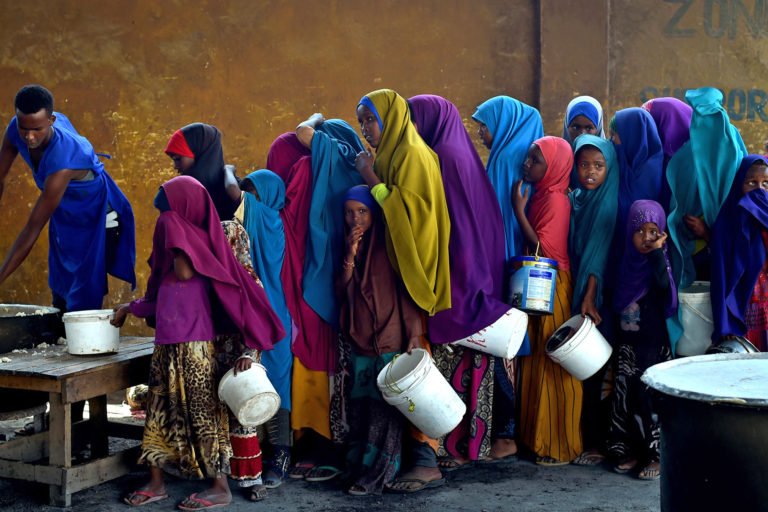- On June 22, a group of nearly 200 Indigenous Pataxó people occupied a eucalyptus plantation inside their demarcated territory in Brazil’s Bahia state, setting fire to the trees.
- In a video manifesto released on June 26, Pataxó leaders drew attention to the wide range of impacts that this and other plantations have had on their lands and health, from pesticide use to water pollution.
- The occupation comes amid growing resistance to the expansion of eucalyptus in Bahia, and rising frustration among Indigenous peoples over the slow process of gaining full legal rights to their land.
- The Pataxó people have been waiting for seven years for the presidential decree that would fully demarcate their territory; President Jair Bolsonaro has vowed not to demarcate any Indigenous territories, and has so far kept that promise.
Frustrated with watching agribusiness and eucalyptus plantations destroy their territory, members of several Indigenous Pataxó communities in the Brazilian state of Bahia took over a plantation, set fire to it, and demanded that the multinational companies leave their land for good, in an attempt to halt outside pressure over their land.
In a video manifesto released on June 26, a Pataxó leader stands flanked by two other men in front of a mass of burning eucalyptus trees. “We are expelling the multinationals, the millionaires and billionaires from here,” he says to the camera. “There won’t be a single eucalyptus tree left on our sacred land, because that’s bad. We want our water, quality land, and our biome recovered. We do not accept this shameful destruction.”
On June 22, 180 Indigenous people took over Fazenda Santa Bárbara, a plantation that was used for cattle raising and also growing eucalyptus trees for multinational pulp production company Suzano. According to Indigenous leaders, the area occupied by the farm falls entirely within the perimeter of the Comexatibá (Cahy-Pequi) Indigenous Territory, which spans 28,000 hectares (69,000 acres) north of the city of Prado, one of the first places of Portuguese colonizers’ contact with South America’s native peoples in the 1500s.
On June 25, another group of around 100 Pataxó took over a different farm, largely abandoned pasture, in the Barra Velha do Monte Pascoal Indigenous Territory. The following day, the landowners and their supporters allegedly expelled the Indigenous people from the area at gunpoint, according to a report by the Indigenist Missionary Council (CIMI), an Indigenous rights advocacy group that’s affiliated with the Catholic Church.
Both cases hang in bureaucratic limbo, like many other land rights issues centered on Indigenous territories in Brazil. In 2019 the Superior Court of Justice recognized the legitimacy of the demarcation of the Barra Velha do Monte Pascoal Indigenous Territory. But its final demarcation was blocked by the justice minister, citing an opinion from a former president, Michael Temer. The Comexitibá Indigenous Territory started the process of demarcation in 2005 and was demarcated and approved seven years ago by Funai, the federal agency for Indigenous affairs, but it’s still awaiting presidential approval. Since Jair Bolsonaro took office as president in January 2019, he has not approved any Indigenous territories — in keeping with his campaign promise to demarcate “not another centimeter” of Indigenous lands.
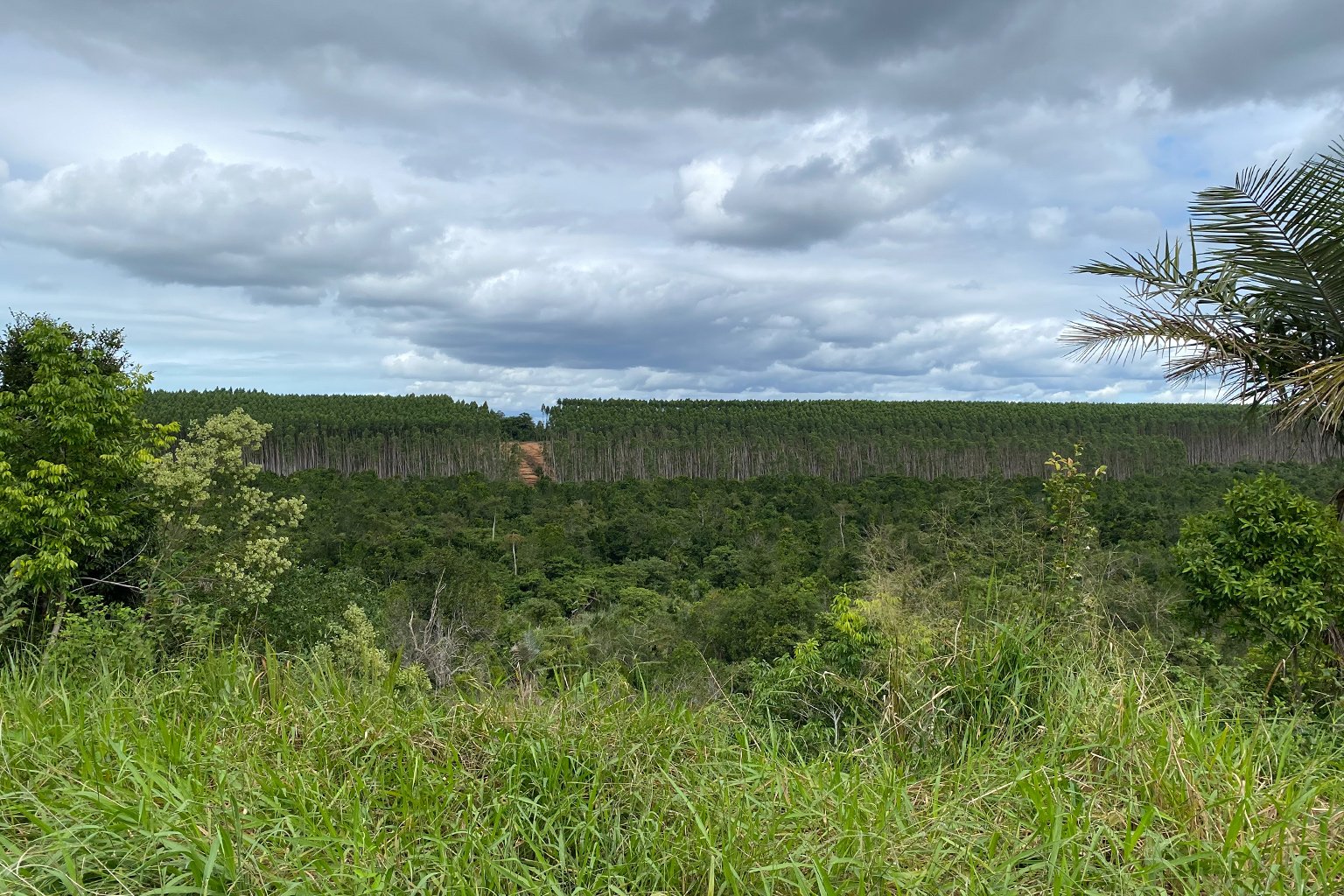
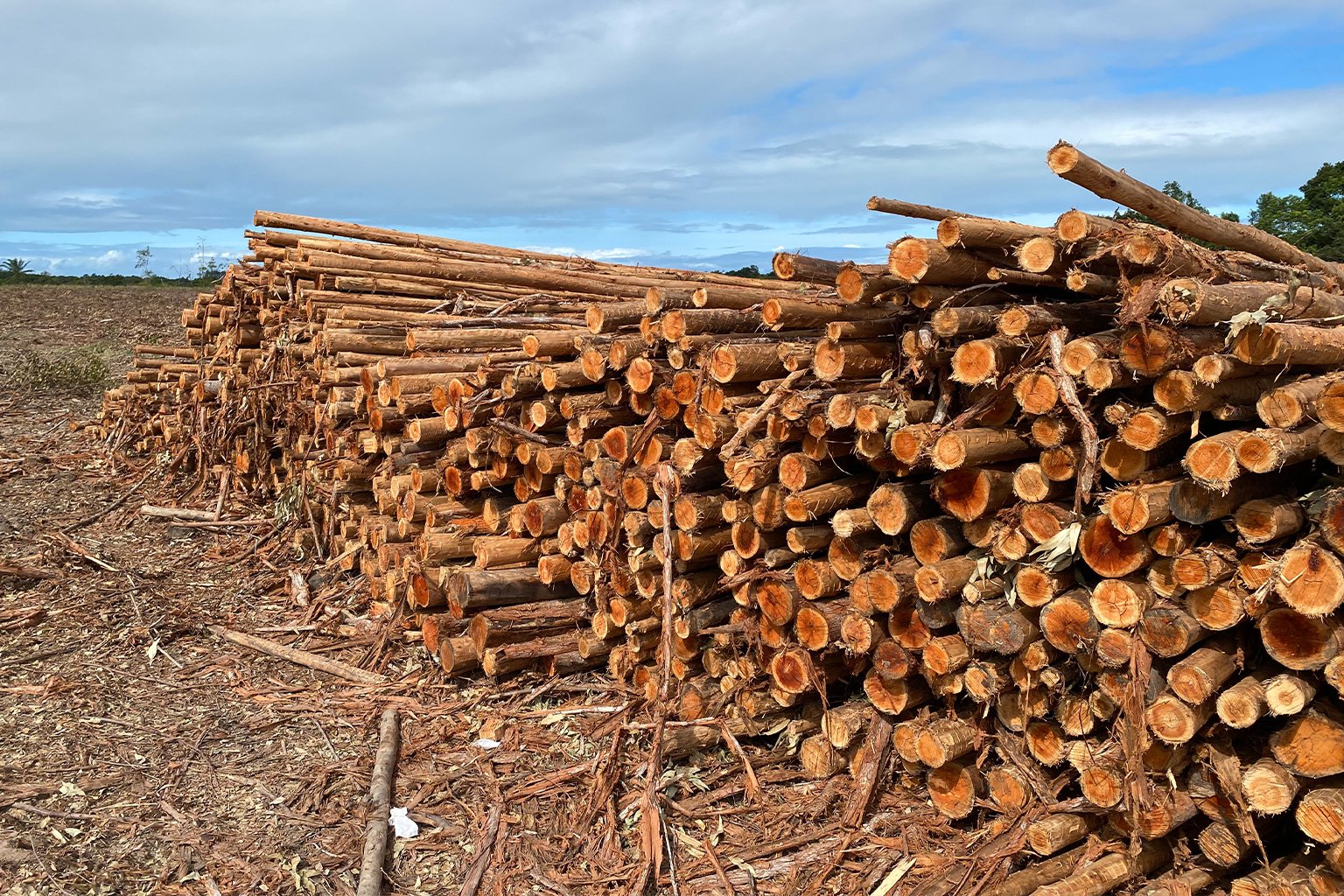
The Comexatibá Indigenous Territory is the site of more land disputes than any other Indigenous territory in Brazil, according to Lethicia Reis, a lawyer at CIMI. The Pataxó not only face pulp production companies, but also expanding tourism and agribusiness sectors, she added in a news release from CIMI.
Eucalyptus is a key economic sector in Brazil, with much of it is grown in the region comprising southeastern Bahia and the neighboring state of Espírito Santo. The region has a long history of conflict involving eucalyptus plantations; activists have been reportedly been killed in land grabs associated with the expansion of eucalyptus. The Landless Workers Movement has occupied plantations, and Afro-Brazilian quilombo communities are increasingly resisting the negative environmental and social impacts of eucalyptus on their traditional lands, activists say.
Suzano, the world’s largest producer of cellulose, has increasingly bought up or merged with smaller pulp and paper companies, according to a U.N. report, and now grow eucalyptus on more than 1 million hectares (2.5 million acres) of land, much of it along Brazil’s Atlantic coast. The company has long touted its green practices, but environmentalists disagree as to how sustainable they really are in practice, Mongabay previously reported. But the position of the Pataxó people is clear: in their manifesto, they called out the multinational company as being partially responsible for the ongoing destruction of their territory.
The eucalyptus species that the company grows are especially damaging to the environment and communities that live around the plantations, environmentalists say. They require large amounts of pesticides that affect water quality, and suck up large amounts of water. “Currently, pulp companies exploit the area by planting eucalyptus trees and this causes serious environmental damage to the entire region, including deforestation and excessive use of pesticides. These practices have been affecting the water resources that still exist in the region,” the Pataxó said in a statement.
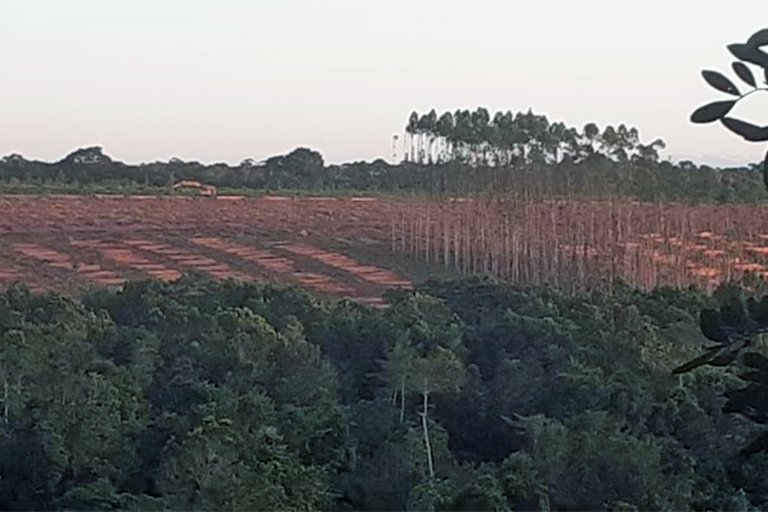
In an emailed response to Mongabay, Suzano said it was aware of and monitoring the situation, but stated that “the area is not a formally recognized indigenous land and underwent a detailed environmental licensing process with all notifications and requirements duly fulfilled.” It also said that it “does not own or operate any areas located in indigenous territory,” and that none of its areas in Brazil are “undergoing land ownership requests or court proceedings.” The company said it “adheres to strict standards and specifications and only acquires wood or operates in areas which meet all prerequisites set forth by law and national and international regulatory bodies. To support this, we have undertaken a meticulous mapping of areas where ownership is held by indigenous people.”
Under the Brazilian Constitution, Indigenous lands are legally classified as territories that are traditionally occupied by Indigenous groups, regardless of whether they have concluded the demarcation process, said Ana Carolina Alfinito, the Brazil legal adviser at Amazon Watch. “The Indigenous right to land exists previous to the conclusion of the demarcation process. So in this case, the economic operations going on within the Pataxó territory are illegal,” she told Mongabay by phone.
Since the occupation of Fazenda Santa Barbara on June 22, the groups that have gathered there have been cut off by farmers from outside supplies, including of food and water, and have also been threatened, although there has been no violence, Indigenous leaders said. On July 7, the government of Bahia sent an urgent request for more federal police in the area. The request has so far has gone unanswered, Mãdy Pataxó, an indigenous chief told Mongabay over the phone.
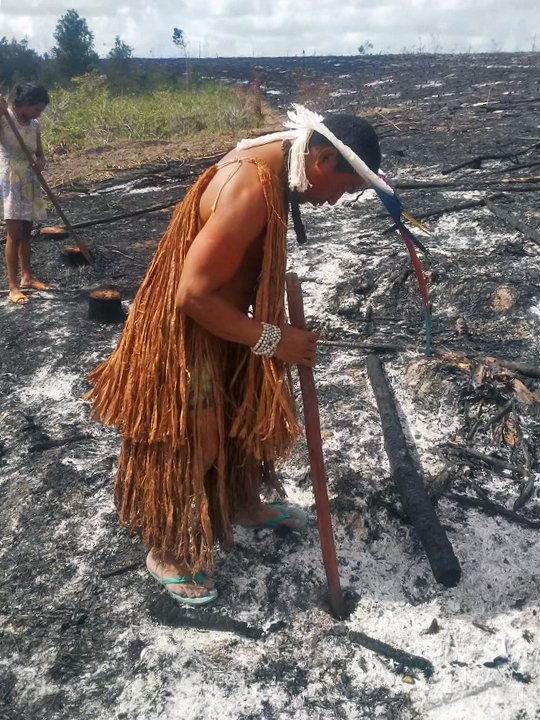
In place of the eucalyptus, the Pataxó have started planting native fruit trees like amesca, imabaúba and sapucaí.
“The Pataxó families need the land for their survival, and to promote Indigenous agriculture, religious practices and protection of existing natural resources,” an Indigenous chief says in a video. “We ask for help from the Brazilian and international authorities and society. Support the Indigenous cause, which is true and legitimate. We can’t take it anymore, this land is our flesh, the water is our blood and the forest is our spirit.
“Pulp, monoculture and extensive farming are destroying everything”, he adds.
Banner image: On June 22, a group of Pataxó started the first of two occupations to reclaim their territory and expel plantation companies from their land. Image courtesy of Rodrigo Mãdy Pataxó.
FEEDBACK: Use this form to send a message to the author of this post. If you want to post a public comment, you can do that at the bottom of the page.




